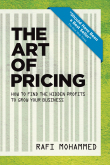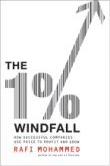Why Is Ticket Scalping Illegal?
Over the last year, the Boston Globe has run a series of articles highlighting the sins of ticket scalping...oh those evil ticket brokers. The Globe’s latest article mentions that the Boston police are going to start aggressively enforcing Massachusetts’ 1924 anti-scalping law that requires resellers to be licensed by the state and limits resale prices to no more than $2 above the ticket’s face value. Additionally, citizens are taking ticket brokers to court over accusations of violating this 1924 law. C’mon…what’s the big deal about ticket scalping?
Tell me this, what other product in the United States does the government feel compelled to get involved with regulating its resale price? Virtually any product I buy, I can resell on eBay for whatever price I choose. The only exception I can think of is after natural disasters, some states have anti-gouging laws on essential products like food and water, which seems reasonable. But let’s face it, I think we all can agree that not attending a Red Sox game or “The Police” concert hardly qualifies as life threatening.
From discussions with industry experts, it’s clear that some musicians and sports teams keep their ticket prices low (below-market) as a sign of appreciation for their fans’ loyalty (as well as to avoid media backlash over “taking advantage of consumers” – which is another blog in itself). By setting prices below what the market will bear, sports teams and musicians create a market environment characterized by sell outs, excess demand, and frenzied customers willing to pay premiums to obtain tickets. Here’s my question, why is it the government’s responsibility to ensure that those lucky enough to purchase tickets at face value do not resell their tickets at a higher price? Exactly how much is it costing tax payers to make sure that “scheming” buyers don’t resell their legally obtained Rolling Stones tickets for a profit?
Why isn’t it the responsibility of organizations that deliberately sell tickets, at prices they know are below-market, to take actions to prevent resale? For example, lucky buyers of the best tickets to see Bruce Springsteen can only pick up their tickets on the day of the concert. Thus minimizing (but not eliminating) the opportunity to resell prime tickets. Similarly, the Boston Red Sox sells a small number of tickets in an area of right field called “Conigliaro’s Corner” that must be picked up on the day of the game and buyers must immediately enter the stadium.
And really, how “fair” is the current way that “below-market priced” tickets are sold to the public. If tickets to a popular show go on sale on Tuesday at 10 AM –what about those of us who work and cannot line up, phone, or log on to TicketMaster? Why am I penalized because I have a job and cannot take time off to try to get tickets? Similarly, while I could not find exact figures, it’s reasonable to estimate that over 50% of Red Sox tickets are sold to season ticket holders (note: Fenway Park is the smallest major league ballpark and is always sold out). How fair is it that in order to get a good shot at Red Sox tickets, I have to fork over thousands of dollars for season tickets?
Suppose 15% of a venue’s tickets end up being resold at higher prices by scalpers. Is that really all that bad? Sure, some tickets are resold at higher prices but on the positive side, 85% of tickets got into the hands of patrons that the sports team or rock star deem “acceptable.” And if these rock stars and sports team have issues with scalpers profiting from below-market prices, why not have venues sell some tickets at scalper prices (and donate profits to charity) or take on the responsibility of policing the market. Oh well, I guess that’s too much trouble…it’s easier to let taxpayers pick up the tab to make sure that tickets to the latest Dancing With the Stars road show aren’t resold for more than $2 above face value…
Here’s some unsolicited advice for:
Rock Stars: If you are worried about scalping to fans that are dying to see your show, add another night or play a larger venue.
Massachusetts Government. You’ve got more pressing issues to focus on...two words: BIG DIG.
Readers' Comments on This Blog Entry
I think the anti scalping laws are bogus!!! As a season ticket holder who dishes out thousands of dollars to have MY seats for the season as wellas the right to buy playoff tickets (paid upfront!!!), I should be able to sell my tickets for whatever the market will bear!! Look at TICKETMASTER!!! They have fees added on top of the "face value". Why shouldn't I be able to sell my ticket for the same price as Ticketmaster, which by the way, round 2 playoff games for the Celtics, the price difference between my face value and Ticketmaster's is approximately $90.00.
scalping is illegal and should continue to be illegal because you don't own anything, the ticket, the seat remain the property of the venue. So the right to sell another product does not apply. I have no problem with recouping a loss based on the fact you can not attend but making a profit off something that you never out right own is just bogus. You did not create anything or put any work into it so why should you profit? Its just another lame way to make money which is the root of a much bigger problem in this country and needs to change.
david, the scalper bought the seat for a length of time, and the scalper looks to sell his seat for that length of time. so in honesty, he is selling a legitimate product; he is only the middle-man
I'm sorry David but just because you don't own something physical doesn't mean that you don't own anything. By purchasing a ticket you are buying (and hence become the owner of) the right to attend the given event. You own the right, and there is no reason that you should not be able to sell that right at a profit. The monetary value of your right should be determinted by the amount a willing buyer is happy to pay for it. It's called capitalism, and if you don't like then the secondary ticket market is the least of your concerns.





I totally disagree with your opinion. Scalping tickets by resellers such as stubhub or Ace tickets is worng and unfair.Why do they have the right to buy up all available single game tickets before they go on sale to the public and then charge triple their face value? Then,guess what, there ARE no tickets that go on sale to the general public as they have all been purchased by the scalpers/ticket agencies. To me, it is a VERY big deal.